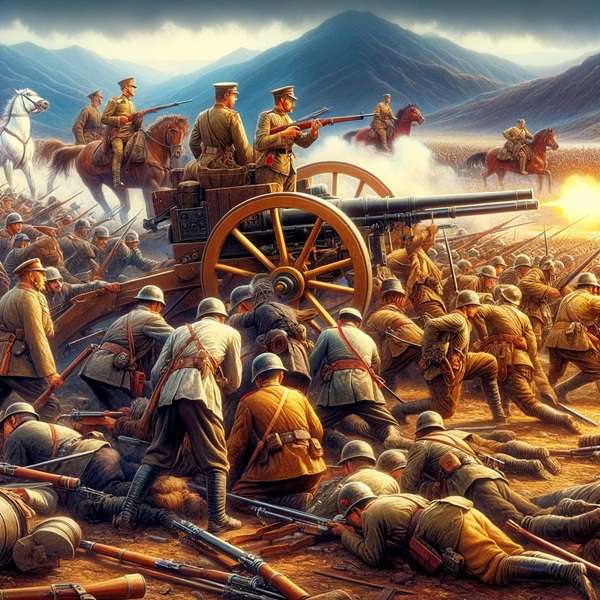
The Spark of Conflict
The seeds of this conflict were sown in the late 19th century, as both Russia and Japan aspired to expand their influence in East Asia. Korea, strategically located and culturally rich, became the focal point of their imperial ambitions. Russia, with its vast land empire, was looking eastwards to extend its influence in the Pacific, while Japan, rapidly modernizing and eager to assert itself as a regional power, saw control over Korea as essential to its national interests.
The Unlikely David and Goliath
What made the Russo-Japanese War particularly remarkable was the dynamic of the opponents. Russia, a colossal European power, was widely expected to dominate. However, Japan, an island nation that had only recently emerged from centuries of isolation, challenged these expectations. The war was a David and Goliath story, where Japan’s modernized military forces took the world by surprise.
Key Battles and Strategies
The war saw several key battles, both on land and at sea. The Battle of Port Arthur, the Siege of Port Arthur, and the Battle of Mukden were crucial land battles, demonstrating the ferocity and determination of both sides. The naval Battle of Tsushima, however, was perhaps the most decisive, where the Japanese navy delivered a crushing blow to the Russian fleet, altering the course of naval warfare history.
Impact on Korea
For Korea, the Russo-Japanese War was more than a geopolitical tussle between two foreign powers. It was a battle that would determine its fate for decades to come. Japan’s victory effectively ended Russian ambitions in East Asia and paved the way for Japanese colonial rule over Korea in 1910. This period of colonization, which lasted until the end of World War II, had profound and lasting effects on Korean society, politics, and culture.
Legacy and Relevance
The Russo-Japanese War is a crucial chapter in understanding the complex history of East Asia. It reshaped the balance of power in the region and signaled the emergence of Japan as a modern imperial power. Furthermore, it was a harbinger of the conflicts that would engulf the region in the coming decades, including World War II and the Korean War.
Conclusion
The Russo-Japanese War, with its dramatic battles and significant repercussions, remains a fascinating study of imperial rivalry, military strategy, and the relentless quest for dominance. Its impact on the Korean Peninsula and the broader East Asian region continues to be felt and studied, providing valuable insights into the forces that have shaped modern history.
Rediscovering the Korean Empire (1897-1910): A Brief Era of Independence Amid Regional Powers
Hi, I’m [jeybee]. As a long-time resident of Seoul, I’m passionate about uncovering the authentic, everyday magic of Korea. This blog is my way of sharing my favorite spots, tips, and cultural insights with you, beyond the usual tourist traps.

